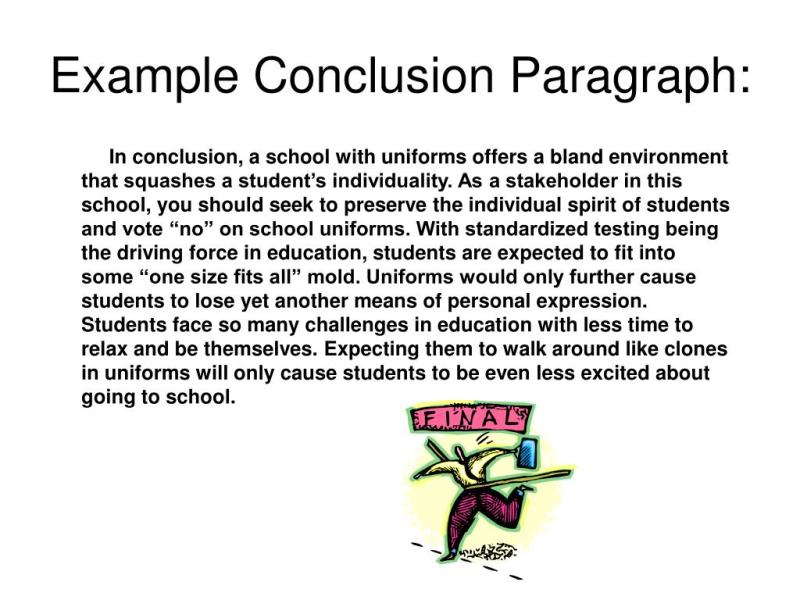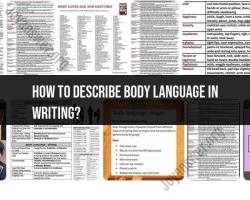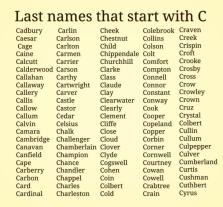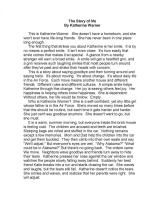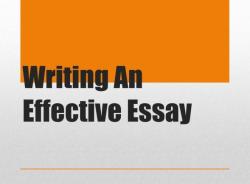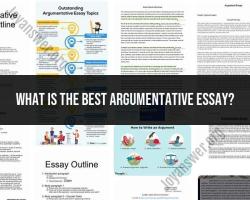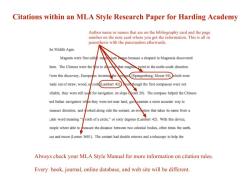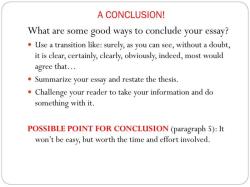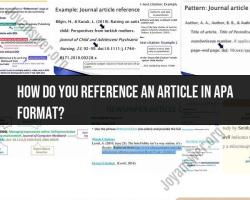How do you write a conclusion in an introductory essay?
Writing a conclusion for an introductory essay involves summarizing the main points, restating the thesis, and providing a sense of closure for the reader. Here are some strategies to help you write an effective conclusion:
Summarize Key Points:
- Briefly review the main points you've discussed in the body of the essay. Highlight the key arguments or evidence that support your thesis. Be concise but comprehensive in your summary.
Restate the Thesis:
- Remind the reader of your main thesis or central argument. However, avoid simply copying and pasting your thesis statement from the introduction. Instead, rephrase it to reinforce the main idea.
Provide a Sense of Closure:
- Offer a sense of closure by making it clear that your essay is coming to an end. Signal to the reader that you have covered the necessary points and are bringing the discussion to a close.
Connect to the Introduction:
- Establish a connection with your introduction. Reference an idea, image, or theme from the introduction to create a sense of symmetry and unity in your essay. This helps to create a cohesive narrative.
Reflect on the Significance:
- Reflect on the broader significance or implications of your arguments. Consider the "So what?" question. Why is your topic important, and what are the broader implications or applications of your ideas?
End with a Strong Statement:
- Conclude your essay with a powerful and memorable statement that leaves a lasting impression on the reader. This could be a thought-provoking idea, a call to action, or a statement that emphasizes the importance of your topic.
Avoid Introducing New Information:
- In your conclusion, avoid introducing new information or bringing up new points that haven't been discussed in the body of the essay. The conclusion is a place for wrapping up, not for introducing new content.
Consider the Tone:
- Maintain a tone that is appropriate for your essay. If your essay is more formal, keep the conclusion in line with that tone. If it's a more personal or creative essay, your conclusion can reflect that style.
Leave Room for Thought:
- Consider leaving the reader with something to think about. This could be a question, a challenge, or a statement that encourages further reflection on the topic.
Revise and Edit:
- After writing your conclusion, take the time to revise and edit. Ensure that your conclusion aligns with the overall tone and content of your essay and that it effectively summarizes and concludes your discussion.
Remember that the conclusion is the last impression your reader will have, so make it count. A well-crafted conclusion can leave a lasting impact and reinforce the significance of your essay's main ideas.
Crafting a Compelling Conclusion for an Introductory Essay
A compelling conclusion is the cornerstone of a powerful introductory essay. It serves as the final impression, leaving the reader with a clear understanding of the essay's central message and a lasting impact. To craft a compelling conclusion, consider these key elements:
Summarize Main Points: Briefly recap the essay's main points, reminding the reader of the key arguments and evidence presented.
Reiterate the Thesis Statement: Reassert the thesis statement, emphasizing the essay's overarching claim and tying it back to the introductory paragraph.
Provide Further Insight: Offer a fresh perspective on the topic, extending the discussion beyond the scope of the essay's main body.
Propose Solutions or Next Steps: Suggest potential solutions to the issue addressed in the essay or propose avenues for further exploration.
Leave a Lasting Impression: Conclude with a memorable statement or thought-provoking question, leaving the reader with a lingering sense of the essay's significance.
Summarizing Main Points and Reiterating the Thesis Statement
A well-crafted summary of the main points serves as a concise reminder of the essay's key arguments. It should not be a mere repetition of the body paragraphs but rather a synthesis of the main ideas. The thesis statement, the essay's central claim, should be explicitly restated, reinforcing its importance and ensuring the essay's coherence.
Leaving a Lasting Impression with a Strong Conclusion
A strong conclusion goes beyond merely summarizing the essay; it aims to leave a lasting impression on the reader. This can be achieved through various techniques, such as:
Provocative Question: Pose a thought-provoking question that invites further reflection on the essay's topic.
Anecdote or Quote: Share a relevant anecdote or quote that reinforces the essay's message.
Call to Action: Encourage the reader to take action or engage further with the issue.
Final Thought: Offer a concluding statement that encapsulates the essay's essence.
Remember, a compelling conclusion is not an afterthought but an integral part of the essay's structure and impact. It should seamlessly connect the essay's main points, reinforce the thesis statement, and leave the reader with a lasting impression.
